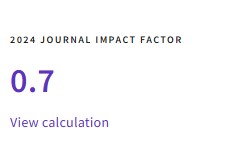Use of nutritional supplements in university estudents
DOI:
https://doi.org/10.24310/riccafd.2017.v6i1.3799Keywords:
nutritional supplement, counselling, student, exerciseAbstract
The aim of this research was to identify the characteristics that determine the consumption of nutritional supplements (NS). The universe was composed of internal students of the University of Montemorelos, in which 211 volunteer students were given a closed questionnaire, to obtain information about level of schooling, type, duration, frequency and reason for the exercise Performed, the use of NS and type of orientation. Results: 27.5% of the respondents consume some type of nutritional supplement, the most consumed NS are protein (29.3%), and sports drink along with vitamin complex (20.7%). The least consumed NS are L-Carnitine (8.6%) and creatine (5.2%). It was found that the type of exercise is a determinant for the consumption of some type of NS. Gender and exercise motif influence the choice of NS type. Male students showed incorrect information about NS.
Downloads
Metrics
References
Palacios Gil de Antuñano N, Manonelles Marqueta P, Blasco Redondo R, Franco Bonafonte L, Gaztañaga Aurrekoetxea T, Manuz González B, Villegas García JA. Ayudas ergogénicas nutricionales para las personas que realizan ejercicio físico. Archivos de Medicina del Deporte. 2011; 29 (1): 6-80.
Rodríguez F, Crovetto M, González A, Morant N, Santibáñez F. Consumo de suplementos nutricionales en gimnasios, perfil del consumidor y características de su uso. Revista Chilena de Nutrición. 2011; 38 (2): 157-66.
Colls Garrido C, Gómez-Urquiza JL, Cañadas-De la Fuente GA, Fernández-Castillo R. Uso, efectos y conocimientos de los suplementos nutricionales para el deporte en estudiantes universitarios. Nutrición Hospitalaria. 2015; 32(2):837-44.
Sánchez Oliver J, A. Miranda León T, M. Guerra Hernández E. Estudio estadístico del consumo de suplementos nutricionales y dietéticos en gimnasios. Archivos Latinoamericanos de Nutrición, Organo Oficial de la Sociedad Latinoamericana de Nutrición. 2008; 58 (3): 221-27.
Hornstrom GR, Friesen CA, Ellery JE, Pike K. Nutrition knowledge, practices, attitudes, and information sources of mid-american Conference College Softball Players. Food and Nutrition Sciences, 2011, 2, 109-117
Mejía Rodriguez F, Camacho Cisneros M, García Guerra A, Monterrubio Flores E, Shamah Levy T, Villalpando Hernández S. Factores asociados al uso de suplementos alimenticios en mujeres mexicanas de 12 a 49 años de edad. Archivos Latinoamericanos de Nutrición. 2008; 28(2): 164-73.
Froiland K, Koszewski W, Hingst J, Kopecky L. Nutritional supplement Use Among College Athletes and their Sources of Information. International Journal of Sport Nutrition and Exercise Metabolism. 2004; 14 104-20.
Franzini Pereira R, Maria Lajolo F, Daskal Hirschbruch M. Supplement consumption among fitness center users in São Paulo, Brazil Revista de Nutrição Rev. Nutr., Campinas. 2003; 16(3): 265-272.
Downloads
Published
How to Cite
Issue
Section
License
All the contents published in Revista Iberoamericana de Ciencias de la Actividad Física y el Deporte are subject to the Creative Commons Reconocimento-NoComercia-Compartirigual 4.0 license, the full text of which can be found at <http://creativecommons.org/licenses/by-nc-sa/4.0>
They may be copied, used, disseminated, transmitted and publicly exposed, provided that:
The authorship and original source of your publication (Journal, editorial and URL of the work) are cited.
They are not used for commercial purposes.
The existence and specifications of this use license are mentioned.

Copyright is of two kinds: moral rights and patrimonial rights. Moral rights are perpetual, inalienable, inalienable, inalienable, inalienable and imprescriptible prerogatives.
In accordance with copyright legislation, Revista Eviterna recognizes and respects the moral rights of the authors, as well as the ownership of the economic right, which will be transferred to the University of Malaga for dissemination in open access.
The economic rights refer to the benefits obtained by the use or disclosure of the works. Revista Iberoamericana de Ciencias de la Actividad Física y el Deporte is published in open access and is exclusively authorized to carry out or authorize by any means the use, distribution, disclosure, reproduction, adaptation, translation or transformation of the work.
It is the responsibility of the authors to obtain the necessary permissions of the images that are subject to copyright.
















9.png)
